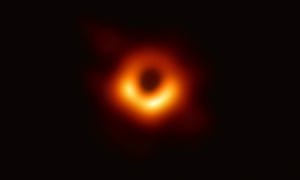mikkel_the_dane
My own religion
Sure I have. If a statement about reality cannot be tested, then it is nonsense.
How do you test this statement: If a statement about reality cannot be tested, then it is nonsense?
The joke is that you can't test that statement using science, so the statement is itself nonsense according to itself. The statement is in reality and a part of reality and thus it is testable itself and it shows the limit of science.
You know what, you are in effect in a limited sense incapable of differentiating when you test objectively versus subjectively.
Nonsense is a subjective first person cognitive construct.
I am showing you some of the limits of science and you in effect don't like that. So here it is: Some of the things we humans do are subjective and can't be done using science:
Science has limits: A few things that science does not do
But it goes "deeper" than that. The word "nonsense" has no objective referent and you seem in effect incapable of "catching" your own thinking and understand that you are not doing science with that statement. You are doing first person what is useful for you. I do it differently because I am a skeptic. It is useful for me to test the limits of knowledge and science and when I do, I know I will arrive at nonsense. Nonsense is the result the brain produces when you hit the limit of understanding. Philosophy as for "you should not take your own thinking for granted, but check it" is in effect a test. You test using an objective test. I test the limit of this objective test using philosophy. That is what makes me a skeptic. I find nonsense in some cases useful, because it is the result you get, when you hit the limit of human understanding. You can't understand everything just as you can't move in every possible way. Mobility is a limited human behavior and so is understanding.
I have said it before and I will say it again. In effect what you try to do, is philosophy and it has already been done. Philosophers have been doing it for over 2000 years now and it was already known at the time at the old Greeks:
"Man is the measure of all things: of the things that are, that they are, of the things that are not, that they are not." Measure is not scientific measure, it is the measure of nonsense and how you subjective make sense of reality. You have one subjective measure for the usefulness of nonsense and I have another. Which is true? Well, there is no objective measure for that. Start doing some basic philosophy and learn to understand that. It is connected to this again:
Science has limits: A few things that science does not do
And it is connected to how you can't in effect reduce everything down to being objective. In effect you are saying this: I subjectively only accept objective results. But it is subjective, that you only accept objective result.
"Man is the measure of all things: of the things that are, that they are, of the things that are not, that they are not." connects to cognitive relativism, which connects to the limits of science and how science is a limited human behavior.
Stop doing philosophy in effect, because you are taking your own thinking for granted and you are not checking it.

